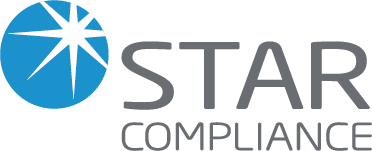Key takeaways from the Star EMEA User Conference
On November 8, Star held its annual EMEA User Conference in London. STAR Platform users from across the region had the chance to interact with fellow users face-to-face, trade tips and techniques, and query Star staff on the ins and outs of the Star compliance system.
Session participation was robust and the interactions lively. Guest speakers were also in attendance, and in a panel discussion offered their take on the dominant themes in this year's FCA published paper—Transforming Culture in Financial Services—focusing in particular on how they relate to compliance.
Those themes—delivered in a series of 28 essays written by thought-leading academics, industry leaders, international regulators, and change practitioners—included:
- Using behavioral science to guide incentives and cultural change.
- Looking beyond the role of leadership in effecting change.
- Applying strategic focus to the continuous process for adapting culture.
- Fostering environments of trust to encourage openness and learning.
- Applying a systems perspective to assess internal culture and external influencers.
Tim Ward, Star's Director of Product Strategy and Marketing, moderated the panel discussion. Tim was joined onstage by:
- Peter Massey Cook, Head of Ethics, State Street
- Michael Murray, Head of Compliance Control, Baillie Gifford
- Andy Lyon, Partner, Blacklight Advisory
- Wayne Lottering, Head of Central Compliance, Aviva Investors
WHY THE FCA FOCUS ON CULTURE?
"It's a fascinating question. I wondered weather there was a realization that the tone needed to shift. Having myself been part of the team that created the FCA and the FSA, there was a palpable sense at that time that the financial crisis happened on their watch. And immediately after that, I think there was a sense of 'it's not going to happen again.'"
"There's also been a sense of punishment around areas critical to the financial sector. Having spoken to people in the supervisory space, I think the FCA determined that moving forward a more nurturing approach might be better. That principles, not rules, should start to shape behavior. To try and apply a moral compass to the sector's culture. Of course, the devil's in the details now, as to how to do that."
"By focusing on culture, in a way, it makes the FCA's job easier. Concentrating on helping people do the right thing. And by communicating the understanding that individual employees and firms will be supported in doing the right thing, and that that's how the sector will be governed. Of course, this isn't to say that fixing culture is easy. It certainly has its challenges."
WHAT'S AN INDICATOR OF UNHEALTHY CULTURE?
"Whether or not people speak up can be a bellwether cultural indicator. Certainly in terms of when you're trying to identify if you've got a good, healthy, strong culture, evidence of people speaking up is a good thing. If people aren't speaking up it may be because they fear their concerns won't be listened to, that their inclination to do the right thing isn't shared by leadership."
HOW DO YOU INFLUENCE CULTURE?
"In the FCA paper, it's made clear that culture is invisible and intangible, which makes it a very complex subject. But I think there are ways in which culture can be measured. Employee surveys can be very valuable in picking up on firm trends, and can be vital in generating discussion in the governing committees. Employee surveys can help leadership get an idea of what's going on beneath them, below the surface."
"A challenge around trying to influence or control culture is, you do have different pockets, in different geographic areas, for example. And you can't make any assumptions about culture. You have to keep working it. It has to be based on organizational values. And you have to communicate those values, and continuously embed them. You have to be watching and stay aware for where the differences are."
WHAT'S THE ROLE OF COMPLIANCE?
"Compliance can help foster a 'healthy culture'—a term the FCA paper uses—by the way in which it engages employees, and the approach it takes. Back to the idea of being more nurturing. So it's not just 'you must comply with these rules' but 'this is why these rules matter.' So people actually understand for themselves. Then the motivation to comply comes much more from them."
"It's a balance. It's moving away from the idea that compliance are the police. We want people to come to us and say, 'I've got a difficult situation and I need some advice." Better for them to come to us before they do something, than to have to fix something after the fact. If nothing else, that takes more time and can be far more costly. But ultimately, we believe a consultative approach is just more effective."
WHAT'S SOME ACTIONABLE ADVICE?
"Our approach to begin with was to make sure the senior leaders of the company were right on message with the idea of good conduct and a strong compliance culture. For them to understand and help communicate the idea that we were introducing a system that would make it easy to comply. We had senior executives lead important initiatives to get all this across, what we called 'conduct campaigns.'"
"We also had a number of sessions with what we termed 'ambassadors,' or 'champions.' We trained them first and they helped us later with the firm-wide training and system rollout. These ambassadors actually took queries when the system was launched. They communicated with us a lot about the new compliance system, and still do. We capitalized on these naturally enthusiastic and helpful employees."
"We make the compliance team very accessible to the business, so there's always a face behind an email or a query. We take the approach that we're providing a service to the business, to help it comply. Of course, we do have situations where an employee is non-compliant, and we have to take action. And that's very serious. But those incidents are few and far between, and that's not what we lead with."
WHERE IS COMPLIANCE HEADED?
"From what I've seen and heard, automation is the game changer. In terms of freeing up compliance team time and making compliance far easier for employees. Helping compliance stay ahead of the game, and being able to get out in front of things. To see potential issues coming from further down the line. You can better do all this if you're not mired in the minutia of day-to-day tasks."
"Compliance used to be, you looked through the rulebook and determined what could or couldn't be done. Going forward, the two most important skills I see a need for are people skills—being able to make yourself accessible to the business—and tech skills. We're all going to have to become much more tech savvy. It's inevitable in this job: we're all going to be technologists."


